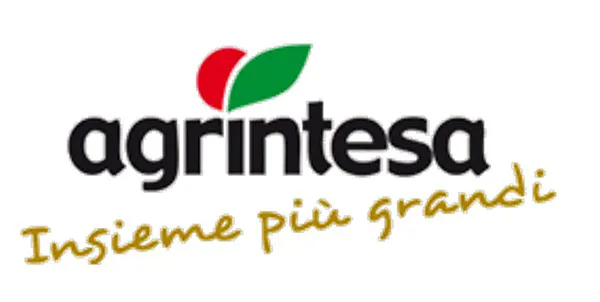In 2020, Agrintesa and all the members of the cooperative faced a very complex year filled with challenges, from the pandemic to the spring frosts. During these months the fruit and vegetable market and and the entire society underwent a radical change. Cristian Moretti, general manager of the cooperative, took stock of the situation and announced that "the year 2021 is about to start under the signs of an inevitable change at a global level".
FreshPlaza (FP): Spring frosts impacted heavily on fruit production, particularly affecting the summer crop, but damages were also seen in the winter crop. How did it go?
Cristian Moretti (CM): As predicted in the immediate post-frost, the summer product volumes were significantly reduced, with a drop in terms of volume of around 80%. As for winter fruit, on the other hand, a rather mixed picture is emerging, with good results in the high risk profile sector and, albeit to a lesser extent, also for persimmons, while for green kiwi fruit we are facing a further reduction in quantities compared to the (already poor) year 2019.
Finally, the volumes of yellow kiwi are increasing thanks to new plant installations going into production. This reference is increasing both in interest and consumer demand and is leading to very encouraging commercial results. In terms of volumes, we are facing a substantial decline, as it is easy to imagine if we look at the summer production data. Overall, we expect a 35% drop in volumes in comparison to the previous year.
Cristian Moretti
FP: In this scenario, what actions have you taken to safeguard the workers of Agrintesa members?
CM: During the summer months, in order to protect the income of our members as much as possible, Alegra, Valfrutta and Brio have successfully intervened in the market. On the commercial front, we are overall satisfied, as prices were quite good considering the little product available. The supplies were provided at the end of April, strawberries achieved an average price of 1.96 €/kg, while cherries, of which our cooperative boasts an extremely high level of production and organization, stood out this year. The market feedback was excellent and, for this campaign, we expect to pay producers more than 4.20 € for all the quantities supplied (not only for the top quality).
FP: What about the other stone fruits?
CM: With regard to peaches, nectarines and apricots, given the limited volumes available, we focused on increasing the value of the product. By the end of the campaign, we expect an average price of 1€ for nectarines, 0.85€ for peaches and 1.35€ for apricots. These are significant results but, unfortunately, they can not compensate for the lack of volumes encountered by members during the year, nor can they make up for the impact of the frosts. However, it was fundamental for Agrintesa to seek, both in terms of market and management, the greatest possible value and maximize the yields of the little product available.
FP: What about plums?
CM: Summer plums are a specific case in point. Even in the face of a significant drop in production, they are still doing badly on the market and consumers are becoming increasingly disinterested. We are addressing this situation by implementing a strong varietal upgrading and have already been working for years on improving the quality. The trend is different for Angeleno plums which have done well and in line with expectations, also because of our market placement and the very small volumes available.
FP: The winter campaign is in full swing and the fall campaign has just ended. What can you say about these productions?
CM: The apple sector is in line with the trend of 2019, with the exception of the Gala crop, whose commercialization ended with a significant increase in results compared to last year, while for pears we experienced a more diverse trend depending on the variety, but on average it was below the expectations of the season. As regards persimmons, one of Agrintesa's historical productions, the campaign, that has just ended, showed better results than in 2019, with a good trend on the domestic market, and a more difficult one on the foreign front, due to Spanish competition.
FP: What about kiwis?
CM: The season has only just started for the green kiwi. Over the years, Agrintesa has achieved a leading position in this sector, by guaranteeing adequate results to the producers, thanks to our market leadership and our highly specialized warehousing. The top goal for 2021 remains the same, that of guaranteeing the best result in production and keeping the market positioning.
FP: Therefore, is safeguard the key word of 2020?
CM: Following the frost disaster and the Covid crisis, Agrintesa was primarily concerned with protecting its members and their companies from the risk of not surviving the production damages, by guaranteeing continuity to employees and collaborators, by protecting their health as well as their valuable jobs. This strategy was not based on sitting idly by waiting for the storm to pass, but rather on taking concrete steps that allowed us to continue to keep up our long-standing competitiveness and organizational standards.
FP: What is the outlook for 2021?
CM: The current scenario is a very complex one, not to mention the ever existing problems of the sector. Our reference market, namely Europe, is paying a very high price for the pandemic and the national economy will be weaker than in the past. It will take time for a complete return to normality, consumption styles will change, the demands of the market and consumers will change, and sustainability will be an increasingly crucial aspect of the challenge. On this front, Agrintesa has many projects in the field and many others are currently underway. As we have demonstrated over the years and even more so in recent months, inertia is not our attitude.
Contact:
Agrintesa 
Via G. Galilei, 15
Faenza (RA)
Phone: (+39) 0546 619111
Email: [email protected]
Website: www.agrintesa.com
